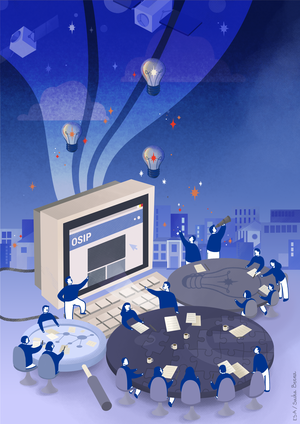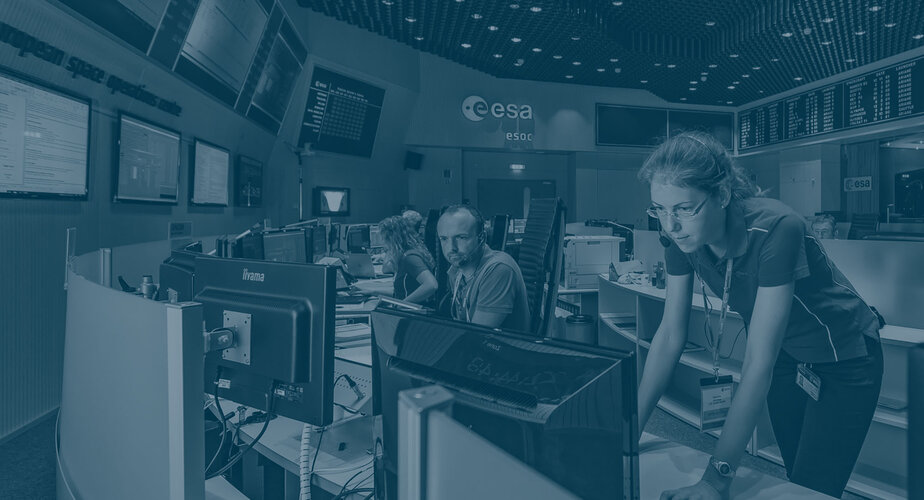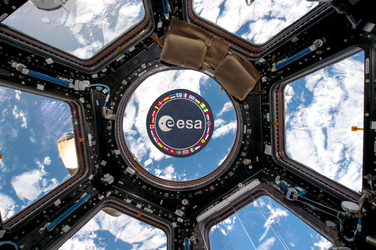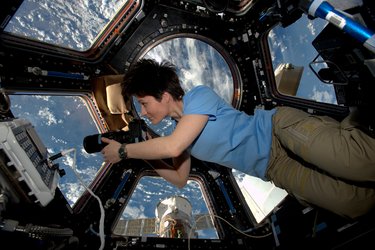Recruiting during COVID-19
With the COVID-19 crisis, ESA has taken a range of precautionary measures in order to minimise the spread of the virus while also ensuring business continuity within the organisation. Find out how the pandemic has impacted our recruitment process and what other measures have been taken.
ESA continues to operate its space missions. Scientific, exploration, Earth observation, climate and technology testbed satellites are continuing to produce data and provide vital services. In line with national guidelines, teleworking is currently encouraged as much as possible and most ESA employees are now working from home. All meetings are taking place remotely and external visitors to the various ESA sites are restricted until further notice.
Our Human Resources Department has also continued its work and, as part of this, the recruitment of new colleagues is still ongoing.
Recruitment process
ESA vacancies continue to be published on the ESA recruiting site and selection interviews are now taking place remotely via Microsoft Teams or WebEx.

Our new colleagues are supported by our HR Department at each step in order to ensure a positive onboarding experience despite the circumstances. Line managers ensure that newcomers are welcomed into their teams and support integration into the new working environment.
In order to have access to onsite facilities when necessary, e.g. laboratories, newcomers are still expected to move to the country of their duty station wherever possible. Relocation support is provided to help with the move and arrangements made for the new colleague to receive the necessary equipment, e.g. laptop, on their first working day.
ESA student internships
Exceptionally this year, the student internship programme is offered remotely. In certain rare cases, opportunities can be hosted on site, for example if your work requires access to a laboratory.
So if you are selected for an internship, you can expect to telework from your place of residence. You will be welcomed and guided virtually by your ESA tutor who will accompany you throughout the duration of the internship.
For answers to all the questions you may have about applications for 2021, please check our FAQs.
How does ESA continue to operate its space missions?
Over the past months, COVID-19 has disrupted all of our lives enormously. But throughout the pandemic, ESA has been using its space data, services and technology to support the response effort. Read our article ESA and the COVID-19 pandemic
Mission controllers maintain the service
Since early March, the majority of the workforce at ESA’s European Space Operations Centre (ESOC) mission control in Darmstadt, Germany, have been working from home. But despite the constraints this involves, mission controllers have overseen complex manoeuvres and procedures. These have included testing a laser space communications system, space debris avoidance manoeuvres, a dramatic Earth flyby and even recovering a spacecraft after it experienced a major power failure.

More information about Careers at ESA
Visit our careers website for more information about ways to join us, our recruitment process, and what is it like to work at ESA.















 Germany
Germany
 Austria
Austria
 Belgium
Belgium
 Denmark
Denmark
 Spain
Spain
 Estonia
Estonia
 Finland
Finland
 France
France
 Greece
Greece
 Hungary
Hungary
 Ireland
Ireland
 Italy
Italy
 Luxembourg
Luxembourg
 Norway
Norway
 The Netherlands
The Netherlands
 Poland
Poland
 Portugal
Portugal
 Czechia
Czechia
 Romania
Romania
 United Kingdom
United Kingdom
 Slovenia
Slovenia
 Sweden
Sweden
 Switzerland
Switzerland





























